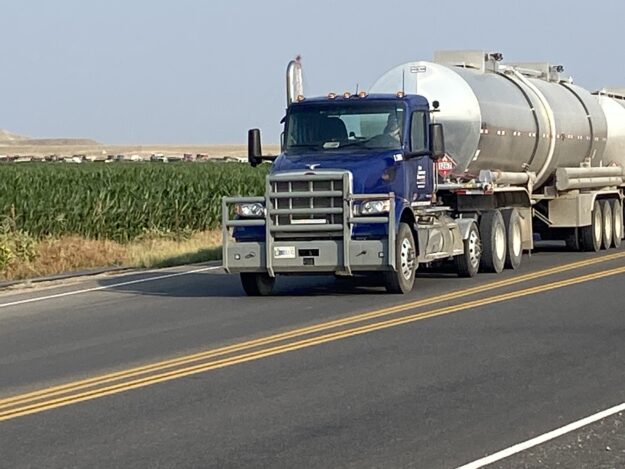Widgetized Section
Go to Admin » Appearance » Widgets » and move Gabfire Widget: Social into that MastheadOverlay zone
Neguse, Bennet call for halt to BLM emergency rule aimed at increasing Utah oil-train traffic

A Trump administration scheme to jam through a big increase in Utah oil trains traveling along tracks in the narrow canyons of the upper Colorado River was met with a strong statement of condemnation by Colorado U.S. Rep. Joe Neguse and Sen. Michael Bennet on Monday.
“The Bureau of Land Management’s decision to fast-track the Wildcat Loadout expansion — a project that would transport an additional 70,000 barrels of crude oil [a day] on train tracks along the Colorado River — using emergency procedures, is profoundly flawed,” the lawmakers wrote.
“These procedures give the agency just 14 days to complete an environmental review — with no opportunity for public input or administrative appeal — despite the project’s clear risks to Colorado,” Neguse and Bennet added in an email statement. “There is no credible energy emergency to justify bypassing public involvement and environmental safeguards. The United States is currently producing more oil and gas than any country in the world.”
Last week, the U.S. Bureau of Land Management posted an announcement that the agency had started the process for approving a right-of-way expansion for the Wildcat Loadout near Price, Utah – an old coal-loading facility on federal land first reported on by RealVail.com in 2023.
The expansion of the facility is essentially a plan B if controversial federal funding schemes and hotly contested approvalsdon’t come through for the 88-mile Uinta Basin Railway connecting the oil-rich area of northeastern Utah to the main rail network near Price.
Neguse, assistant Democratic leader, represents a district that stretches from Fort Collins to Boulder to Vail and most of Eagle County, which successfully sued to stop Utah’s oil-train project back in 2021 – only to have the U.S. Supreme Court recently rule in favor of the oil train proponents on some aspects of the National Environmental Policy Act.
Lawyers continuing to fight the Uinta Basin Railway expected President Donald Trump to possibly issue an executive order forcing through federal approval of the project as soon as last week. Instead, it seems as if oil companies will continue to truck the waxy crude, too thick for a pipeline, the 90s miles down to Price, where the industry can come close to the railroad levels of oil transport without the multi-billion-dollar expense of the new rail spur.
Despite ongoing air-quality issues in the area, the industry is trying to pump up production and transport through Colorado on the way to Gulf Coast refineries by up to 350,000 barrels a day (or 10, two-mile-long oil trains a day). Right now, there are about three trains a day and about 90,000 barrels of oil a day, with the loadout expansion promising an additional 70,000 a day.
Eagle County fought for and won more extensive environmental review of the project because of the prospect of derailments in hard-to-reach canyons of the Colorado River, including Gore and Byers Canyons, leading to possible wildfires and oil spills in the vital water source for 40 million Americans.
“We strongly oppose BLM’s use of emergency authority in this case and urge [Interior] Secretary [Doug] Burgum to suspend this process and conduct a full Environmental Impact Statement that gives Coloradans a voice in decisions that directly affect them,” Neguse and Bennet wrote.
David O. Williams
Latest posts by David O. Williams (see all)
- Neguse, Bennet call for halt to BLM emergency rule aimed at increasing Utah oil-train traffic - June 23, 2025
- The O. Zone: Trump’s long list of broken campaign promises just jumped to yet another forever war - June 23, 2025
- The O. Zone: Coming to Vail this summer? Leave fireworks, risky fire behavior at home - June 20, 2025


